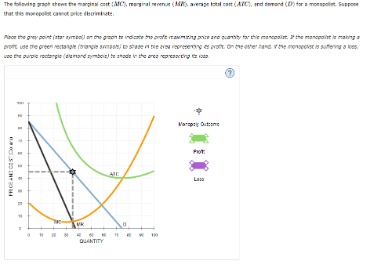
GAAP – The Generally Accepted Accounting Principles (GAAP) are a set of guidelines used by a business to prepare and present financial statements. It is developed and regulated by the Financial Accounting Standards Board (FASB). It also regulates the income statements, balance sheets, debt, equity, and expenses. Accounting Period is a specific period of time used to record financial transactions and prepare financial statements. This period can be a month, quarter, or year depending on the start and end dates of the accounting period.
While the GAAP principles are primarily used by large companies, if you hope to someday take your company public, you may want to start following GAAP accounting methods early on. While creating financial reports, accounting professionals must strive to disclose all situations, circumstances, and events that are relevant to financial statement users. All information that is relative to the business and is important to a lender or investor must be disclosed in the content of the company’s financial statements or in the notes to the statements.
Assets = liabilities + equity of the owner
The five accounting terms ensure certain practices are carried out according to best practices, as well as state and federal law. Depending on the size of your business, they can be used as references for stakeholders or any other managing entities. An economic entity’s accounting records include only quantifiable transactions.
Spotlight: the IPO process in Cayman Islands — Lexology
Spotlight: the IPO process in Cayman Islands.
Posted: Mon, 04 Sep 2023 16:21:08 GMT [source]
Let’s consider the following example to better understand abnormal balances. The Historical Cost Concept needs support of two other concepts for practical purposes, viz. (i) the Money Measurement Concept (already discussed above), (ii) the Balance Sheet Equation Concept. Accounting process, however, conforms to an algebraic equation which, in other words, depreciation methods 4 types of depreciation you must know! is involved in two laws of nature, i.e., the law of constancy of matter and the law that every effect originates from a cause. On the other hand, when an advanced payment is made by a customer, the same cannot be treated as revenue realised or earned. (b) It fails to keep any record of such matters which cannot be expressed in terms of money—e.g.
Cost Principle
Thus, there will be a double entry for every transaction—Debit for receiving the benefit and Credit for giving the benefit. So, for each and every debit there must be a corresponding credit, and vice versa. This is the principle of Double Entry System of Accounting which, in other words, known as the ‘Dual Aspect Concept’. The Principle of Materiality dictates that accountants must strive for full disclosure of a company’s monetary situation. This principle prevents companies from omitting any information from their financial reports regardless of whether it casts the company in a positive or negative light. The Principle of Sincerity dictates that accountants must strive to provide a complete and accurate depiction of a company’s financial situation.
At Interactive College of Technology, you have two options, an Accounting diploma and degree program. For example, when a business buys a car, it can right off the value that is lost each year based on its depreciation. Public Company Filings – the regulator filings that a business must make with organizations like the SEC.
Research Accounting Services
She has been working in the writing sphere for the last five years, covering everything from breaking news to lifestyle features, and now digital payments. Caroline previously served as the Marketing Coordinator at PaymentCloud, a merchant services provider that offers hard-to-place solutions for business owners across the nation. The objectivity principle is the concept that your books should only contain verifiable data that you can back up with objective evidence. There should never be the subjective measurement of values, even if that data is better than the verifiable data. Foregoing this rule could lead to confusion between different parties who may not find the subjective information easy to understand.
Form 487 FT 10913 — StreetInsider.com
Form 487 FT 10913.
Posted: Thu, 31 Aug 2023 15:54:15 GMT [source]
Once accounting procedures are finalized, they can be automated using proper available technology. In order to record a transaction, we need a system of monetary measurement, or a monetary unit by which to value the transaction. Without a dollar amount, it would be impossible to record information in the financial records.
International Financial Reporting Standards (IFRS)
Some red flags that a business may no longer be a going concern are defaults on loans or a sequence of losses. The separate entity concept prescribes that a business may only report activities on financial statements that are specifically related to company operations, not those activities that affect the owner personally. This concept is called the separate entity concept because the business is considered an entity separate and apart from its owner(s). For this purpose, expenses which are specially incurred for earning the revenue of the related period are to be considered. In short, all expenses incurred during the activity period must not be taken. Only relevant cost should be deducted from the revenue of a period for periodic income statement, i.e., the expenses that are related to the accounting period shall be considered for the purpose of matching.

The financial accounting standards board lays down a standardized set of guidelines or a broad set of rules that are termed as generally accepted accounting principles. Every publicly listed company in the US has to adhere to generally accepted accounting principles. Critics of principles-based accounting systems say they can give companies far too much freedom and do not prescribe transparency. They believe because companies do not have to follow specific rules that have been set out, their reporting may provide an inaccurate picture of their financial health. In the case of rules-based methods like GAAP, complex rules can cause unnecessary complications in the preparation of financial statements. These critics claim having strict rules means that companies must spend an unfair amount of their resources to comply with industry standards.
What Are the Basic Accounting Principles?
Though there are a number of practical difficulties, Cost Concept Method still serves as a fair and adequate basis for the valuation of assets. In accounting, all transactions are expressed and interpreted in terms of money. Since different transactions occur they are recorded and interpreted in various accounts in monetary terms. So, accounting helps to express heterogeneous economic activities in terms of money. The Principle of Regularity dictates that accountants must abide by all established rules and regulations. It is this principle that establishes the mandate that all other principles and regulations set forth by GAAP must be always followed.
- But actually, to an owner, it is a shift from the personal cash to the business cash.
- Whatever financial transactions could significantly impact business decisions should be recorded.
- The details should not be misleading or incomplete so that the stakeholders, clients, and other related parties are able to understand and draw conclusions regarding the company.
- The principle of periodicity states that organizations should abide by regular and commonly accepted accounting periods, such as monthly, annually, or quarterly.
Besides, at its initial stage, accounting had the basic stewardship function. Although both GAAP and IFRS exist to meet similar goals, their precise disclosure requirements differ. Therefore, GAAP-compliant companies are not automatically IFRS compliant, and issuing IFRS-compliant statements requires companies to include additional information. This principle states that all valuations should be based on the assumption that a business will continue to operate in the future as it has in the past.
GAAP comprises a broad set of principles that have been developed by the accounting profession and the Securities and Exchange Commission (SEC). Two laws, the Securities Act of 1933 and the Securities Exchange Act of 1934, give the SEC authority to establish reporting and disclosure requirements. However, the SEC usually operates in an oversight capacity, allowing the FASB and the Governmental Accounting Standards Board (GASB) to establish these requirements. As illustrated in this chapter, the starting point for either FASB or IASB in creating accounting standards, or principles, is the conceptual framework. Both FASB and IASB cover the same topics in their frameworks, and the two frameworks are similar.

























